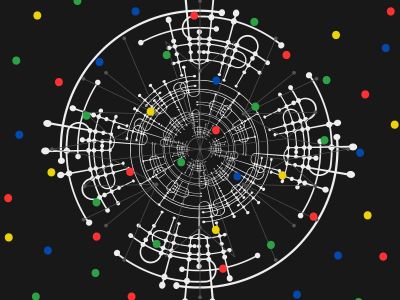Artificial Universal Intelligence: Current Endeavors and Future Prospects

Artificial Universal Intelligence (AUI) is an ambitious concept in the field of artificial intelligence, envisioning a system that can adapt and perform any intellectual task that a human can, across all domains and environments. This concept represents a significant leap from the current state of AI, encompassing elements from existing categories such as Artificial Narrow Intelligence (ANI), Artificial General Intelligence (AGI), and Artificial Superintelligence (ASI). This article explores the concept of AUI, compares it with ANI, AGI, and ASI, and assesses how far we are from achieving this ultimate form of AI.
Understanding AI Categories
-
Artificial Narrow Intelligence (ANI):
- Definition: AI systems designed to handle specific tasks, operating within a limited scope. They excel in well-defined activities but cannot generalize beyond their programming.
- Examples: Voice assistants like Siri, recommendation systems on Netflix, and image recognition software.
-
Artificial General Intelligence (AGI):
- Definition: AI that can understand, learn, and apply knowledge across a wide range of tasks at a level comparable to human intelligence. AGI can adapt to new situations and solve unfamiliar problems.
- Status: AGI remains theoretical, with ongoing research and development efforts aiming to bridge the gap between ANI and AGI.
-
Artificial Superintelligence (ASI):
- Definition: AI that surpasses human intelligence across all domains, including creativity, problem-solving, and social interactions. ASI would possess capabilities far beyond the most brilliant human minds.
- Potential: ASI is speculative and raises profound ethical and existential questions, with potential impacts that could dramatically alter human society.
-
Artificial Universal Intelligence (AUI):
- Definition: AUI is envisioned as an AI system that can perform any intellectual task across all domains and environments, effectively combining the versatility of AGI with the superior capabilities of ASI. AUI would be universally applicable and adaptable to any situation or task.
- Scope: AUI would not only match human intelligence but also exceed it, being able to continuously learn and evolve across all conceivable areas.
Current Endeavors and Challenges
Research and Development
-
Incremental Progress:
- The journey toward AUI involves incremental advancements in ANI and AGI. Current AI research focuses on creating systems that can generalize knowledge and transfer learning across different tasks.
- Efforts in deep learning, reinforcement learning, and neural networks are paving the way for more adaptive and versatile AI systems.
-
Cross-Disciplinary Approaches:
- Achieving AUI requires interdisciplinary collaboration, integrating insights from neuroscience, cognitive science, robotics, and computer science.
- Understanding human cognition and replicating its mechanisms in AI systems is a significant research focus.
-
Ethical and Safety Considerations:
- Ensuring the ethical development and deployment of AUI is paramount. Researchers are working on creating frameworks to ensure AI systems are aligned with human values and safety standards.
- Addressing biases, ensuring transparency, and developing robust safety protocols are critical components of ongoing research.
Technological and Practical Barriers
-
Computational Power:
- Developing AUI requires unprecedented computational resources. Current hardware limitations pose significant challenges in processing the vast amounts of data needed for such advanced AI systems.
-
Data Availability and Quality:
- The quality and diversity of data are crucial for training AI systems. Ensuring access to comprehensive and unbiased datasets remains a significant hurdle.
-
Algorithmic Complexity:
- Creating algorithms that can generalize across all domains and adapt to new, unforeseen situations is an immense challenge. Researchers are continually developing more sophisticated algorithms to achieve this goal.
Comparison with ANI, AGI, and ASI
-
Scope and Versatility:
- ANI: Highly specialized and limited to specific tasks.
- AGI: Versatile, capable of understanding and learning across a wide range of tasks.
- ASI: Surpasses human intelligence in all areas, with superior problem-solving and creative abilities.
- AUI: Combines the versatility of AGI with the superior capabilities of ASI, applicable across all domains and environments.
-
Current State:
- ANI: Widely implemented in various applications today.
- AGI: Still theoretical, with ongoing research and development.
- ASI: Speculative, with significant ethical and existential considerations.
- AUI: Aspirational, representing the ultimate goal of AI research.
-
Challenges:
- ANI: Task-specific limitations and lack of generalization.
- AGI: Achieving human-like understanding and adaptability.
- ASI: Managing ethical implications and potential risks.
- AUI: Overcoming technological, ethical, and practical barriers to create a universally adaptable and superior AI system.
Artificial Universal Intelligence represents the pinnacle of AI research, aspiring to create systems that can perform any intellectual task across all domains and environments. While significant progress has been made in developing ANI and AGI, achieving AUI remains a distant goal, fraught with technological, ethical, and practical challenges. As research continues, it is crucial to address these challenges proactively, ensuring that the development of AUI is guided by ethical principles and a commitment to societal well-being. The pursuit of AUI promises to unlock unprecedented opportunities, transforming industries and enhancing human capabilities in ways we can only begin to imagine.









